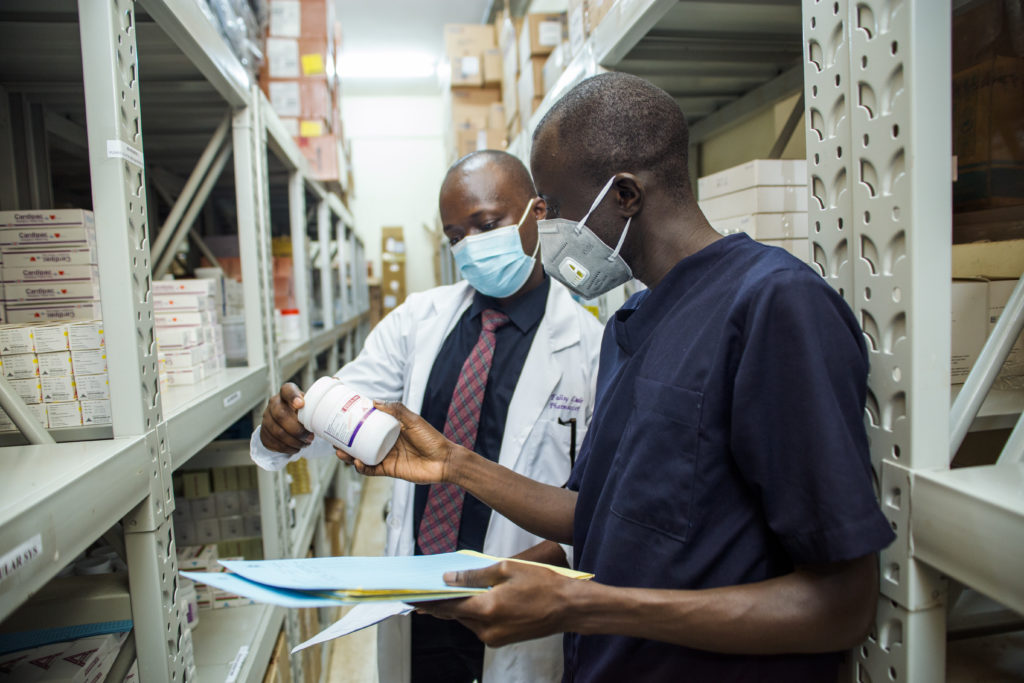National Public Health Institutes: A Critical Network to Monitor, Prevent, and Respond to Epidemics
National Public Health Institutes: A Critical Network to Monitor, Prevent, and Respond to Epidemics

National Public Health Institutes (NPHIs) were thrust into the spotlight when the COVID-19 pandemic jolted the world in 2020. It’s now clearer than ever that strong national agencies devoted to protecting the health of populations and responding nimbly to emergencies are crucial to prevent and prepare for future health crises.
Effective NPHIs act as science-based hubs to promote disease prevention and infectious disease surveillance while collaborating across government, the private sector, and civil society to protect global health security during emergencies.
MSH is partnering with the US Centers for Disease Control and Prevention (CDC) in the Building Capacity for National Public Health Institutes project to help countries bolster and in some cases create their NPHIs.
What are the key elements in strengthening these agencies?
The power to act
While many governments have an agency dedicated to protecting public health, the authority and legal underpinnings that enable their creation can vary considerably. MSH is working in several countries to give NPHIs the power they need to take action, especially during health crises.
The effort in Malawi involves supporting the passage of an update to the country’s health act so the NPHI has the authority to coordinate fragmented public health functions. These changes will also give it power over staffing, budgeting, and other decisions that are especially crucial during emergencies.
Without legislation giving the national institute that authority, it lacks the power to enforce international health regulations and cannot receive certain direct emergency funds from the government to enable it to rapidly respond to health crises.
Training for decisive leadership
The pandemic has underscored the importance of skillful leadership during a crisis as critical for swift decision making, executing well laid-out plans, and accountability.
With that in mind, MSH worked with the CDC to develop the Leading and Managing for Results in Pandemics program to enhance the capacity of teams involved in public health emergency preparedness, response, and recovery efforts.
The 15-week course, available virtually or in person, targets members of public health teams at various types of regional and national institutions currently engaged in responding to the pandemic.
In Uganda, more than 60 health officials involved in the national COVID-19 response are taking part.
Practical workshops include identifying and planning responses to real-world challenges, interviewing stakeholders, and presenting results to participants and coaches.
Organizational capacity
In the event of an emergency, an operations center dedicated to crises can be the difference between an effective response and a disjointed one. If a given outbreak reaches a predetermined benchmark, the emergency operations center, or EOC, is activated, pulling in a group of permanent staff and on-call personnel who can spring to action.
Decisions involving detecting and mapping the spread of an outbreak and conducting the necessary investigation can be coordinated more effectively from a hub tailored to respond to such incidents.
In Rwanda, MSH is helping to establish a network of EOCs, including near the western border region with the Democratic Republic of Congo—a mountainous area prone to outbreaks of COVID-19 and other infectious disease.
In both Malawi and Rwanda, MSH is providing support to these EOCs in different ways, including by contributing to a Public Health Emergency Operations Center handbook.
A well-planned EOC with clear standard operating procedures will empower staff to be ready when an emergency hits, and contribute to establishing a resilient public health system.
Looking ahead, MSH is gearing up to expand the Leading and Managing for Results in Pandemics program to Kenya, Nigeria, Peru, and potentially South Sudan by the end of the year.
In our existing leadership programs in Uganda, Rwanda, and Malawi, we’re working to broaden the focus by building incident management systems and EOCs at the regional level to ensure that communities are engaged.
These efforts will help countries strengthen their public health bodies as they continue to respond to COVID-19 and prepare for the next health crisis, while laying a foundation for the health of all citizens.